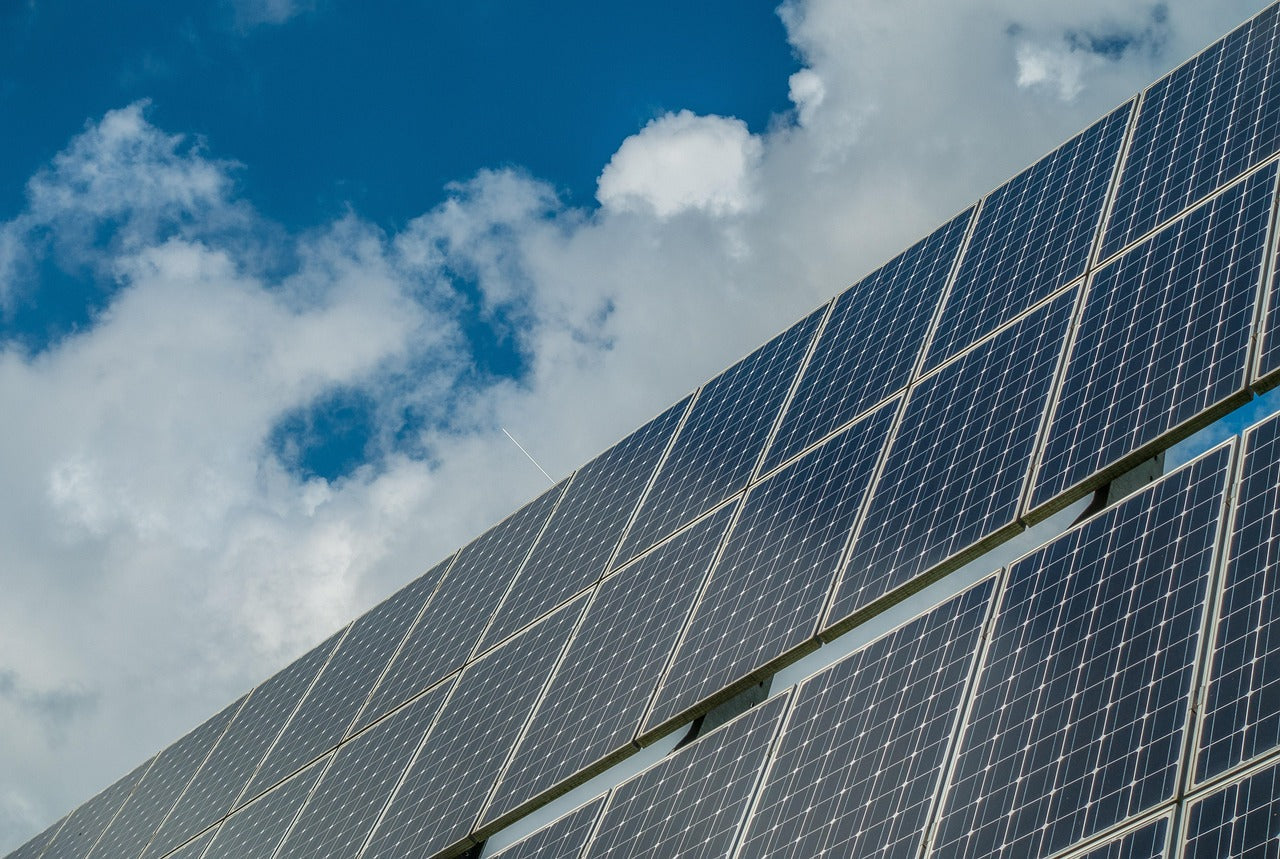Thinking about going solar for your off-grid setup? Whether you’re outfitting your motorhome, upgrading your narrowboat, or updating your remote cabin, solar panels offer a reliable and eco-friendly power source. In this guide, you’ll learn how solar panels work, their key benefits, and how to choose the right system for your needs.
How do solar panels work?
Solar panels convert energy from the sun into electricity or heat, depending on the type of panel. Photovoltaic (PV) panels transform sunlight into electric power by absorbing the energy into individual cells made from layers of a semi-conducting silicon.
The stronger the sunshine, the greater the amount of electricity generated. But it doesn’t always have to be direct sunlight to work effectively – most solar panels work even on cloudy days.
An inverter then transforms the electrical charge into a state which is relevant to you – alternating currency (AC). This is the power on which you run your household appliances. The power which is generated then needs to be stored in a battery which is monitored by a charge controller, so it balances the amount of charge delivered to it.
Types of solar panels
There are six common types of solar panels, but there are two which are optimal for remote energy solutions: monocrystalline and polycrystalline.
Monocrystalline
Easily recognised by their uniform dark appearance, these panels are made from high-purity silicon, which makes them one of the most efficient solar options available. This is because the silicon helps convert solar energy to electricity more efficiently. Monocrystalline panels are ideal for environments where space is limited but energy demands are high. Onboard Energy also offers a solar kit with all essential components for peace of mind.
Pros:
-
Higher efficiency and converts sunlight into electricity more effectively
-
Longer lifespan as mono solar panels typically last 25 years
-
Performs well in low-light conditions, so they’re useful for unpredictable weather or shaded camping areas
Cons:
-
More expensive than polycrystalline panels
-
Rigid and heavy construction limits placement flexibility in some mobile applications and makes DIY tricky
Polycrystalline
Polycrystalline solar panels have a distinctive blue, speckled appearance with a square design. The silicon is melted during production, which makes the manufacturing process faster and more cost-effective, meaning you don’t often pick up the expensive price tag at the end. If you’re budget-conscious and looking for balance and affordability, these panels are a great choice. They’re especially suitable for setups where space isn’t a major concern, such as off-grid cabins, larger RVs, or narrowboats.
Pros:
-
More affordable than monocrystalline panels, offering a cost-effective way to go solar
-
Decent efficiency as these panels can handle moderate energy demands in most environments
-
Durable and reliable construction so they’re still a suitable option for off-grid and mobile setups
Cons:
-
Slightly lower efficiency, so you may need more panels to generate the same power output as a mono option
-
Less effective in low-light conditions, which can be an obstacle in cloudy or shaded areas
What are the benefits of solar panels?
-
Cheaper energy bills: Solar panels provide free, renewable power, reducing your reliance on expensive fuel-powered generators or shore power connections.
-
Greener footprint: Eco-friendly power reduces your carbon emissions. You’re protecting the environment while you enjoy your off-grid adventures.
-
Energy independence: You have the freedom to generate your own power wherever you are. Whether you’re on the open water, parked up in the wilderness, or relaxing in a remote location, you don’t have to rely on external energy sources.
-
Reliable power supply: Never worry about having to allocate charging time for your appliances, lighting or other charging devices – sunlight is an infinite resource which can be harvested again, and again.
-
Lightweight and compact: Modern solar panels are designed to be space-efficient, so they’re ideal for RVs, boats, and off-grid setups where every inch matters.
-
Low maintenance: The durable construction of solar panels ensures they’re suitable for harsh weather conditions and function optimally even in debris-ridden environments. They only need an occasional clean and basic system checks.
-
Easy to install: Most systems are DIY-friendly, but if you’re unsure of the technical know-how, the experts at Onboard Energy can fit your setup for you to ensure a hassle-free installation tailored to your needs.
Ready to find the solar solution for your setup?
Explore Onboard Energy’s solar panel selection and play your part in saving the planet today. Still have some solar questions? Contact the team for personalised advice and the best energy solutions for your remote adventures.


